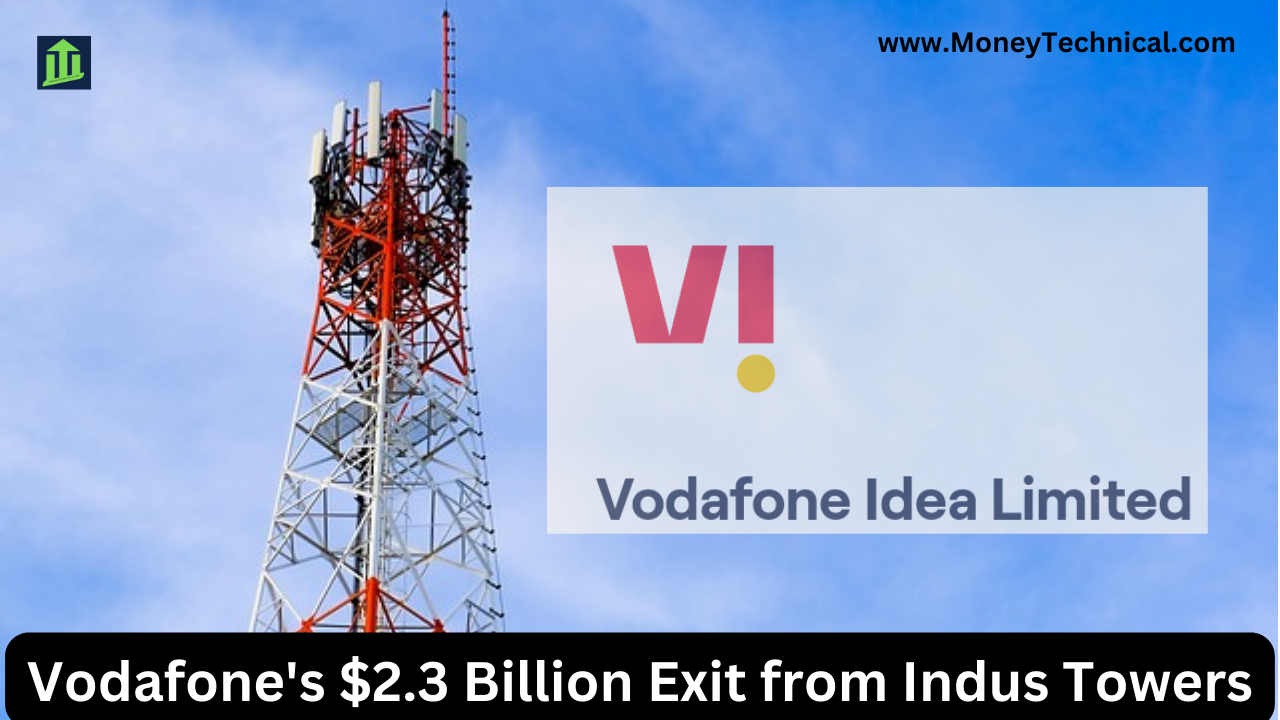Vodafone plans to sell its entire stake in Indus Towers, a leading mobile tower company in India. This move is worth about $2.3 billion and will happen through block deals on the Indian stock exchange soon. Why is Vodafone doing this, and what does it mean for the telecom industry? Let’s find out.
Background of Indus Towers
Indus Towers, started in 2007, is a major player in India’s telecom infrastructure. It was formed as a joint venture between Vodafone Group, Bharti Airtel, and Aditya Birla Group. Indus Towers operates over 175,000 towers across India, providing crucial support for telecom operators to ensure network coverage and capacity.
Vodafone’s Stake in Indus Towers
Vodafone’s stake in Indus Towers came through its Indian subsidiary, Vodafone Idea Limited, after merging with Idea Cellular in 2018. This stake has been important for Vodafone, offering a steady income and strategic advantages in India’s competitive telecom market.
Reason Behind Vodafone’s Exit
Vodafone is selling its stake mainly to reduce its heavy debt load. Over recent years, Vodafone has faced significant financial pressure due to fierce competition and regulatory issues in various markets. Selling its stake in Indus Towers will help Vodafone raise capital and improve its financial situation.
What are Block Deals?
Block deals are large trades between institutional investors that bypass the usual stock exchange process. These trades happen through a separate window, allowing large transactions without significantly affecting the stock price. This method helps Vodafone sell its stake smoothly to a few qualified buyers at a pre-agreed price.
Details of the Planned Sale
Vodafone plans to raise up to $2.3 billion by selling its stake through a block deal. The final sale amount could vary depending on investor interest. The transaction is set to take place on the Indian stock exchange soon, changing the ownership structure of Indus Towers.
Potential Buyers
Although Bharti Airtel, the largest shareholder in Indus Towers, has said it’s not interested in buying Vodafone’s stake, other buyers might be interested. These could include other telecom companies, infrastructure investment firms, or private equity firms looking to invest in the telecom sector.
Impact on Indus Towers
New ownership could bring strategic changes to Indus Towers. The new owner might change pricing strategies, network expansion plans, and overall operations. This could lead to better services and possibly more competitive pricing for telecom operators using Indus Towers’ infrastructure.
Impact on Vodafone
For Vodafone, selling its stake will bring in much-needed cash to address its debt problems. This move also lets Vodafone focus more on its main markets and new opportunities, potentially improving its financial health and performance over time.
Impact on the Telecom Industry
The sale of Vodafone’s stake in Indus Towers will have significant effects on the Indian telecom industry. The new owner will have a strong presence in the tower infrastructure sector, possibly changing market dynamics. This could affect network expansion plans, competitive strategies, and pricing models in the industry.
Investor Sentiment
Investors have mixed feelings about the sale. Some see it as a positive step for Vodafone to stabilize its finances. Others worry about the future direction of Indus Towers under new ownership. Analysts are watching closely to see how the market reacts and what changes might come.
Future Prospects for Indus Towers
With new ownership, Indus Towers faces both opportunities and challenges. There are growth opportunities, especially with the rollout of 5G technology. However, the company will need to maintain operational efficiency and competitive pricing under new management.
Global Context
Vodafone’s sale of its stake in Indus Towers is not unique in the global telecom industry. Similar moves have been made by telecom operators worldwide, selling non-core assets to reduce debt and focus on core business areas. Learning from these global transactions can provide valuable insights for Indus Towers and its new owners.
Regulatory Considerations
The sale will need to meet regulatory requirements in India. Government policies and approvals are crucial for the smooth execution of the deal. Ensuring compliance with regulations will help avoid delays and complications.
Conclusion
Vodafone’s decision to sell its stake in Indus Towers is a significant move in the telecom industry. This sale, driven by the need to reduce debt, opens new strategic possibilities for both Vodafone and Indus Towers. The impact of this transaction will be closely watched, potentially setting new trends in the market.
FAQs
- Why is Vodafone selling its stake in Indus Towers?
- Vodafone is selling its stake to reduce its heavy debt and raise capital.
- What are block deals?
- Block deals are large trades between institutional investors that bypass the regular stock exchange process for smoother transactions.
- Who might buy Vodafone’s stake in Indus Towers?
- Possible buyers could include other telecom companies, infrastructure investment firms, or private equity firms.
- How will the sale impact Indus Towers?
- New ownership could change pricing strategies, network expansion plans, and overall operations.
- What is the significance of this sale for the telecom industry?
- The sale could change market dynamics, affecting competitive strategies, pricing models, and network expansion plans in the Indian telecom sector.

